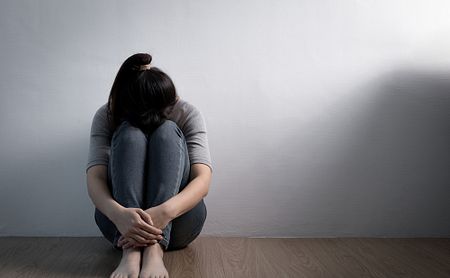Anxiety May Be Unique for Each Patient
Written by |

Anxiety appears to worsen the physical and cognitive symptoms of Parkinson’s disease, despite the various ways that individuals experience it, according to a recent study.
Researchers and healthcare professionals, the study concluded, should take these personal experiences into account when crafting both individual therapies and future research.
The study, “What is the lived experience of anxiety for people with Parkinson’s? A phenomenological study,” was published in the journal PLoS One.
People with Parkinson’s frequently experience stress and anxiety, sometimes defined as “a persistent internal feeling of fear and worry that is intrusive in daily life.”
No medication specifically targets Parkinson’s-related anxiety, however, and little research documents individuals’ experiences with the condition.
Christopher J. Lovegrove, from the University of Plymouth, in England, and Katrina Bannigan of the Glasgow Caledonian University, in Scotland, argue that this is a concern, as anxiety can raise Parkinson’s patients’ risk of falling and affect their quality of life, among other things.
The collaborators interviewed six individuals living with Parkinson’s about their experiences with anxiety and analyzed their responses for common themes and descriptions.
“There has been research into non-medical interventions, such as talking therapy, for people with Parkinson’s and anxiety, but this was the first study to speak to people themselves to understand what it’s like for them,” Lovegrove said, in a university press release.
The pair identified three main themes that encapsulated the participants’ lived experiences with anxiety: ways to cope, the feeling that anxiety amplified their symptoms, and each experience with anxiety being unique.
Although the act of seeking coping mechanisms was common to all respondents, each had their own way of going about it, ranging from seeking comfort in shared experiences to actively avoiding it. Losing the ability to cope was associated with less control and greater anxiety.
Anxiety consistently worsened physical symptoms, but also affected participants’ emotions, engagement in public and social life, ability to think, and feelings of self-identity. One participant likened his experience of how anxiety affected cognition to the physical symptom of freezing of gait: “And the thought process then gets, in the same way as you physically stuck I can get mentally stuck … The brain stops!”
The effect felt by anxiety on emotion was consistently negative, with interviewees describing an amplification of fear, nervousness, and derealization, in which the world around one feels unreal.
“I just feel that I’m there but I’m not part of what’s going on,” said one individual, relating her experiences of derealization.
The participants described changes in their self-identity as often revolving around the sense of losing purpose following a loss of work, or of not trusting oneself to go out places, for fear of feeling ill. Interviewees often described their changes in self-identity as being amplified by their changing relationships with others.
“I’ve always been a sociable outgoing person but, um, I think twice now before I accept an invitation,” said one respondent.
For some, anxiety manifested physically as pain in the limbs, slower movements, and/or gait changes.
Finally, each person’s unique experience of anxiety captured a range of ordeals, from feeling watched, to a loss of confidence, to depression.
Given these responses, the investigators suggested that future Parkinson’s interventions should take each individual’s experience and focus on its component parts to design more effective, tailored therapeutic strategies.
“It was very sad to hear how hard it has been for some people,” Lovegrove said, “but it’s great we’re on the road to help. Ultimately, I want to produce a framework to help people with Parkinson’s live well with anxiety, as well as support their care partners and occupational therapists in the process. The findings from this research will be vital in shaping that.”
Given this study’s small size, the researchers wrote that the next step should be “to explore whether this model holds true for the wider population of PWPs [people with Parkinson’s] as a precursor to developing an intervention.”





